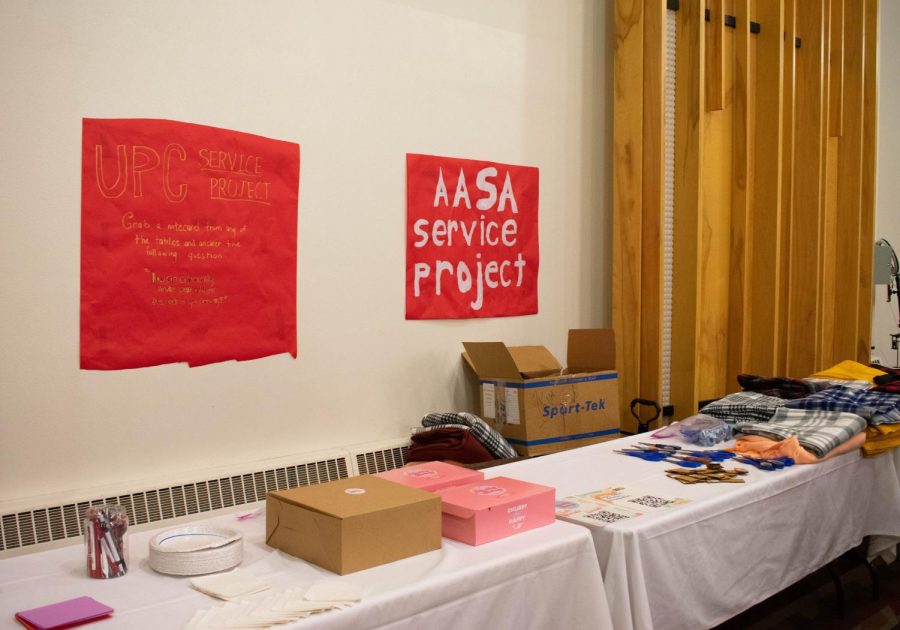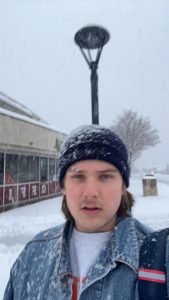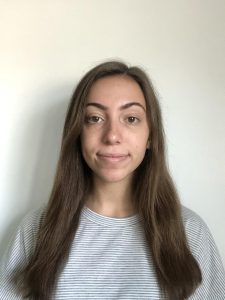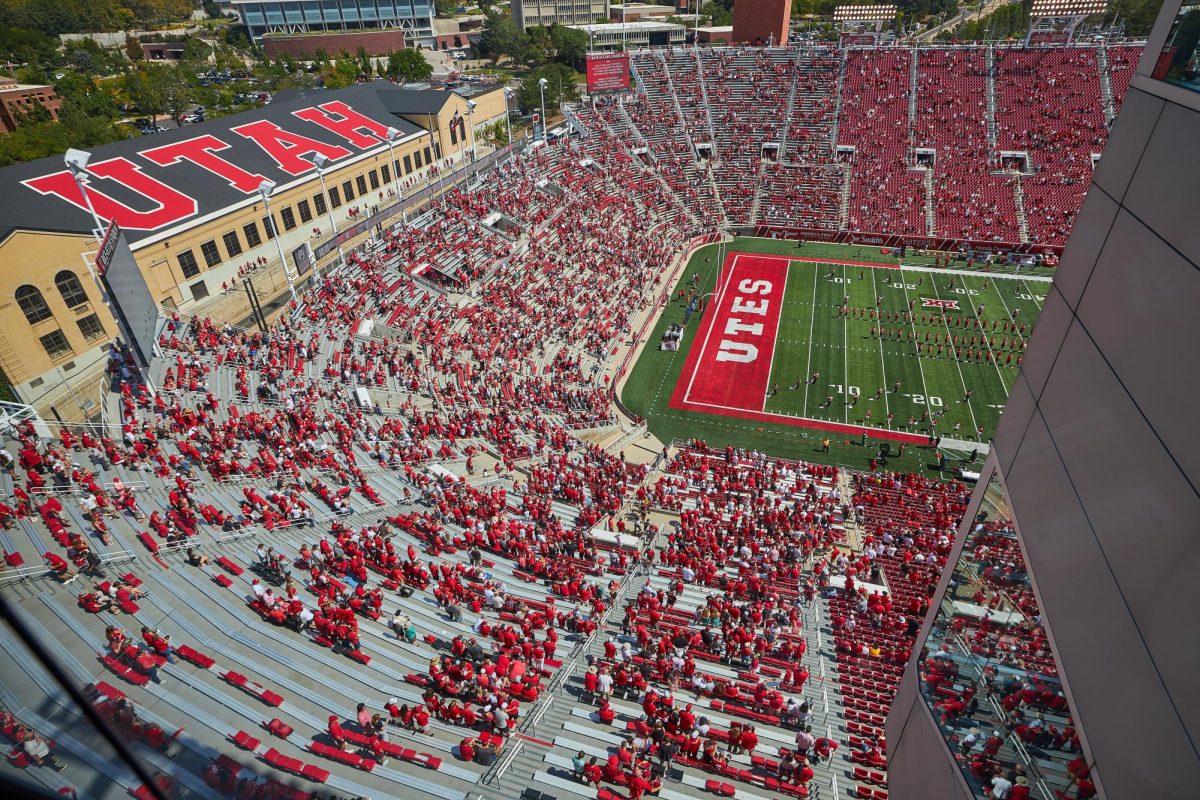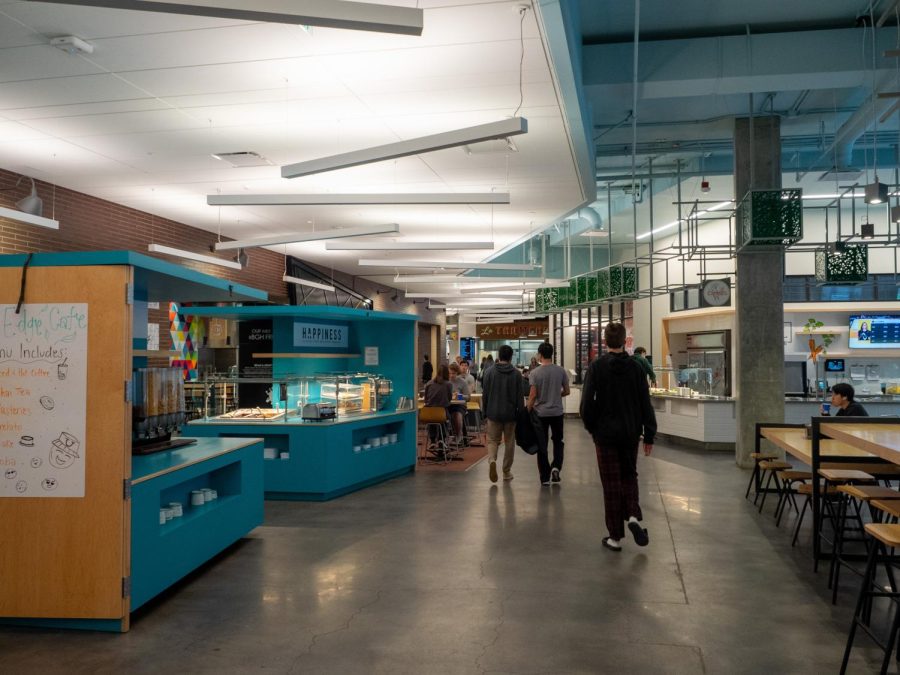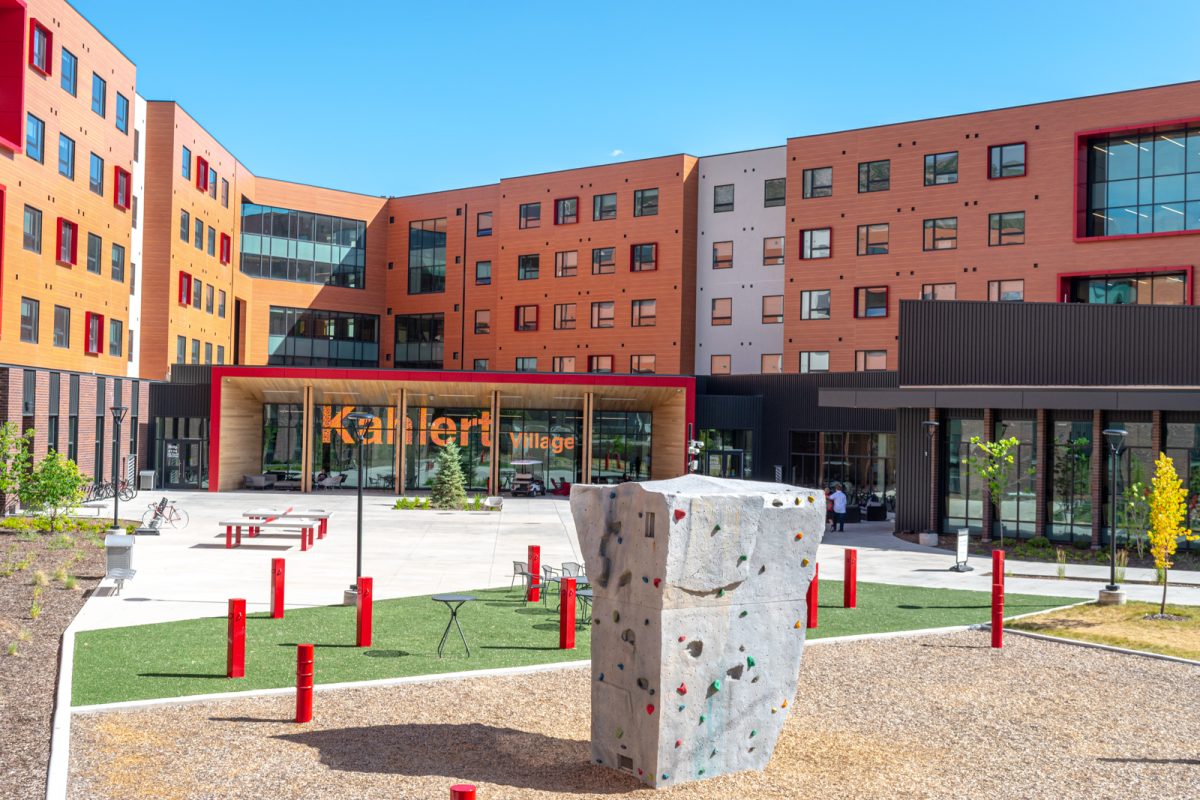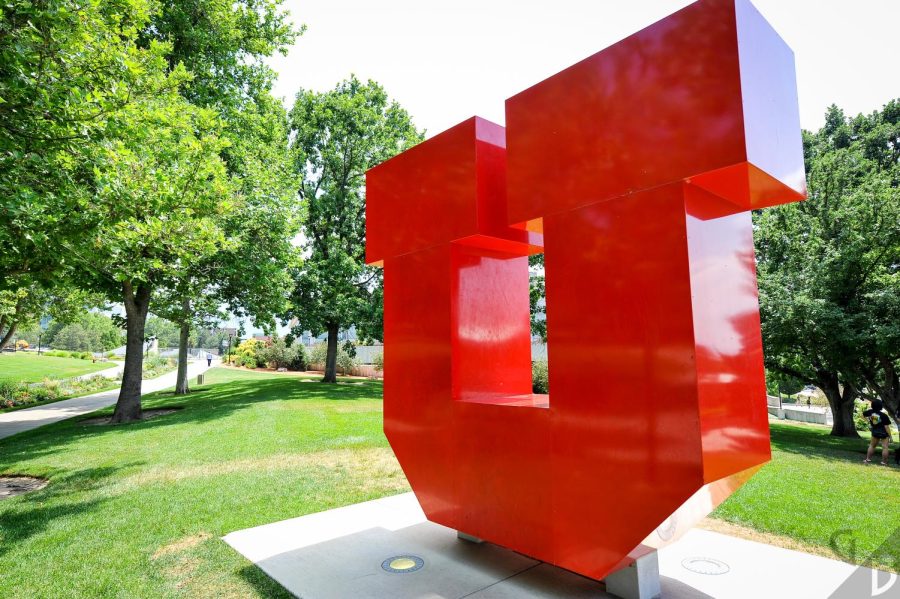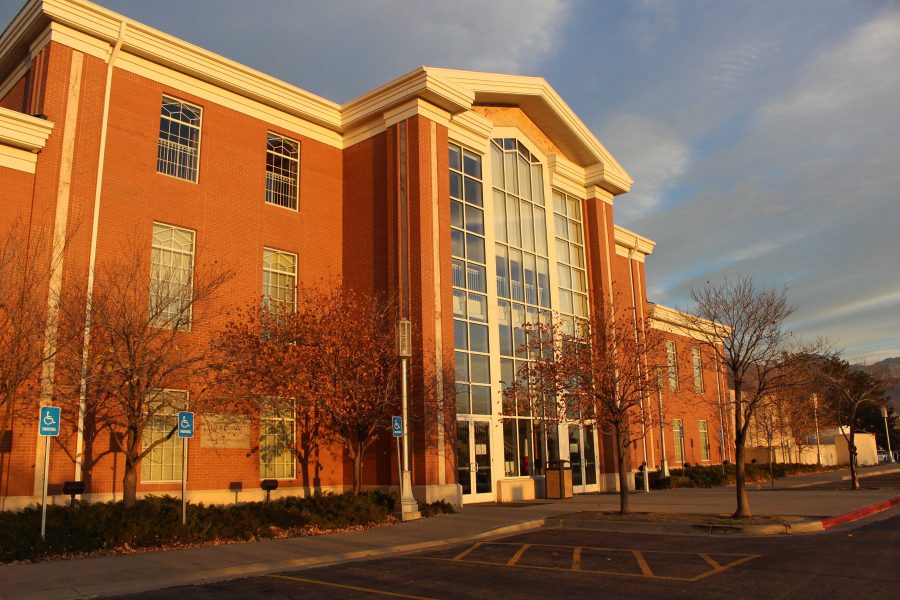Amplify Event Discusses Serving Communities of Color on Campus
A service project organized by the Asian American Student Association (AASA) at their panel discussion on Nov. 17, 2022. (Photo by Andrea Oltra | The Daily Utah Chronicle)
November 18, 2022
When Rome Aguilar, second-year political science and economics major, began in his role as the associate director for the Union Programming Council‘s Community Service Board, he realized that much of the service being done by UPC was not targeted primarily to communities of color.
“When I entered this position, I just noticed that UPC wasn’t doing a lot of community service that was really targeted towards identity-based communities,” he said. “And so I really wanted to do something that highlighted the different identity groups that we had on campus.”
That’s when he came up with the idea for Amplify: Serving Communities of Color, an event that would host diverse student groups on campus and allow them to participate in a panel discussion in which they could discuss the issues facing their communities and how they could best be served on campus.
“We have these representatives from those student groups coming together to talk about what the needs of their specific ethnic communities are in terms of community service and how people interested in community service can address those needs,” Aguilar said.
The event, a collaboration between UPC and the Center for Equity and Student Belonging, came to the A. Ray Olpin Union building on Thursday night. Representatives from several different diverse student groups, including the Asian American Student Association, Pacific Islander Student Association, Inter-Tribal Student Association, Black Student Union and Movimiento Estudiantil Chicanx de Aztlan were present to participate in the discussion.
The event drew a crowd of about 70 people, split between Zoom and in-person attendees.
Aguilar was in charge of planning and moderating the Amplify event, and during the panel discussion, asked representatives questions such as what issues their communities faced and what community meant to them. Alyssa Le, president of AASA, emphasized support in her definition of community.
“My personal definition of community is a group of people who share a vision of support and accomplishment for each other through friendships, family, religion, organizations, and just groups together that really wants to uplift and, not necessarily have a common goal, but want everyone to succeed in the way they want to succeed,” she said.
Aguilar said in order to have community service targeted towards diverse communities on campus, they had to understand the needs of each of those communities and felt it was important to hold an event where they could speak openly about those needs.
“I think it’s really important that we recognize that community service is more than just donating or giving people access to basic resources,” they said. “It goes deeper than that; it goes into community building and really understanding how communities operate.”
The panelists also discussed effective and ineffective community service and the ways in which their communities would be best served by those looking to do community service. Lianne Albert, representing the Pacific Islander Student Association, emphasized the importance of communication going both ways in community service.
“No one knows your community better than your community,” she said. “Meaning that sometimes you gotta take the first step to go out and to inform and educate people.” Most of the representatives agreed, with the general consensus being that understanding a community goes a long way to serving it.
The way that American society is set up, Aguilar said, is so that it only focuses on the needs of certain groups, and he feels that in order for community service to truly serve all communities, they need to shift the focus to underrepresented groups as well.
“In order to have, like, really equal community service, you need to be able to platform other kinds of communities as well,” he said.
Following the discussion panel, there were also two service projects held in the Union. The first was hosted by AASA, where students were invited to help them make blankets for Asian elders and refugees. The second is put on by UPC, and is a continuation of the discussion started at Amplify. It invites students to write on notecards specific ways in which they want their communities to be served and add them to the display. The notecards will be up in the Union for the rest of the month, so students can continue to add to it and see responses from other contributors.


